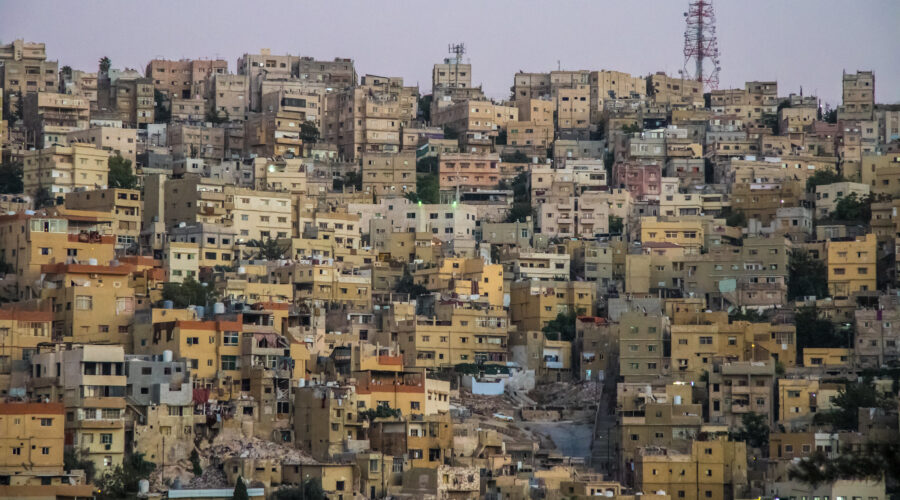“We shall not cease from exploration
And the end of all our exploring
Will be to arrive where we started
And know the place for the first time.”
TS Eliot
Amman today is a peculiar place. At once provincial and cosmopolitan, conservative and yet covertly liberal, stable yet always on the brink of chaos. It is a strange place defying convention with a past that is markedly (in)auspicious.
But for all that it is or may not be, it is most importantly my home.
Despite having been inhabited, on and off, for nearly 10,000 years it has been avowedly committed to the notion of always being on the periphery of history, always within reach of human civilization’s greatest historical moments, yet never at the center of the action.
Amman was founded in the 8th century B.C. by the Ammonites, best known for worshiping Moloch, a deity singularly focused on child sacrifice according to the Bible. I’ve been assured, however, that any such practices have long been discontinued within the city limits. It then played host to what can only be described as a veritable cornucopia of civilizations both antiquarian and modern; anyone and everyone from the Canaanites to the British Empire.
Arguably, the city reached its cultural zenith in the Greco-Roman period as attested by the city’s many archaeological sites dating back to antiquity, a living tribute to a faded glorious past on the edge of empire, a theme that would come to define the city in the centuries to come.
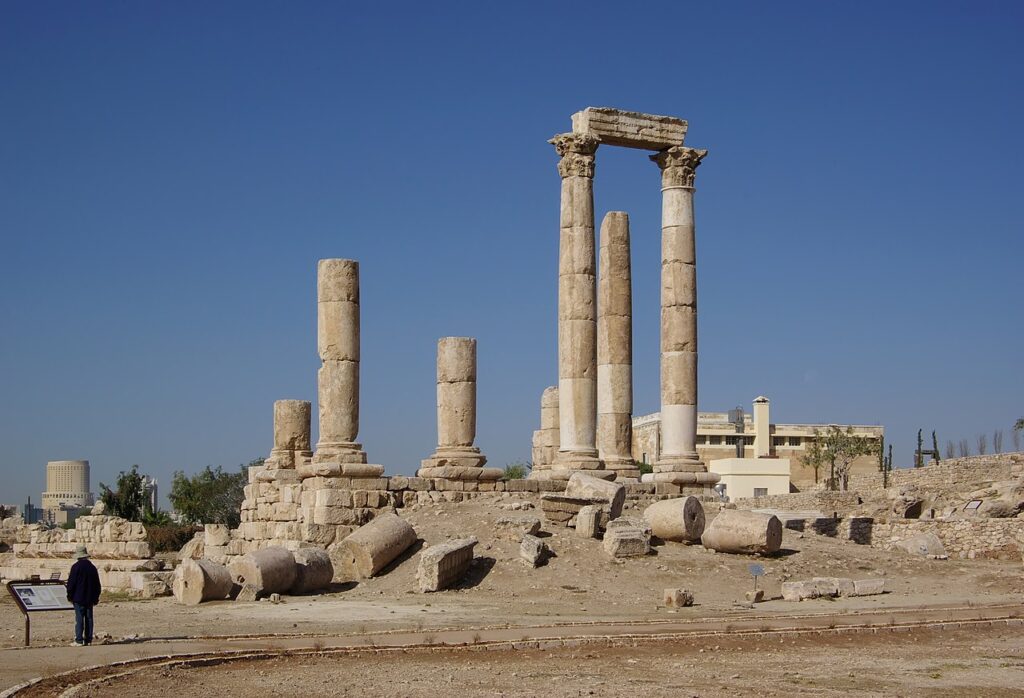
Following the Greco-Roman period it was conquered and merely maintained by the Umayyads, an outpost on the road to Damascus. It was then roundly ignored by the Abbasids and ultimately totally neglected and then forgotten by the Ottomans. It wasn’t until the end of WWI with the formation of Trans-Jordan when the country’s early rulers chose the site of Amman as the location of the capital of the newly formed nation, it being re-settled in the late 19th century by Circassian refugees fleeing the Russian Tsarist expansion.
The modern city, I’m told, was built over seven hills, in an amusing if not slightly ill-conceived tribute to its Roman heritage with the latter also having been built over seven hills. While it may seem cruel to compare the Palatine, Capitoline, and Aventine hills of Rome in their splendor to their long lost Amman-ite cousins Jabal Hussein, Jabal Weibdeh, and Jabal Al-taj, I do applaud those original city planners’ sense of ambition and historicism, it being totally lost on them that any comparisons between the two might leave the latter at something of a slight disadvantage.
In the modern era, it continues its now deeply cemented penchant for dogged peripheral-ism. While sitting firmly at the geographic center of the modern Middle East, it manages to evade being anywhere near the center of the region’s cultural, economic, or political happenings.
I sometimes think that the city looks somewhat enviously upon its more storied regional sisters. She lacks the glamour and drama of Beirut, the cultural relevance of Cairo, and the historic splendor of Damascus. All the same, I like to think, not to be outdone by her siblings, Amman reserves and exudes a continued sense of detached superiority. The reasons for which are never fully articulated, nor understood except to herself. It is her aloofness that defines her and captures her not-insignificant charms and her mystique.
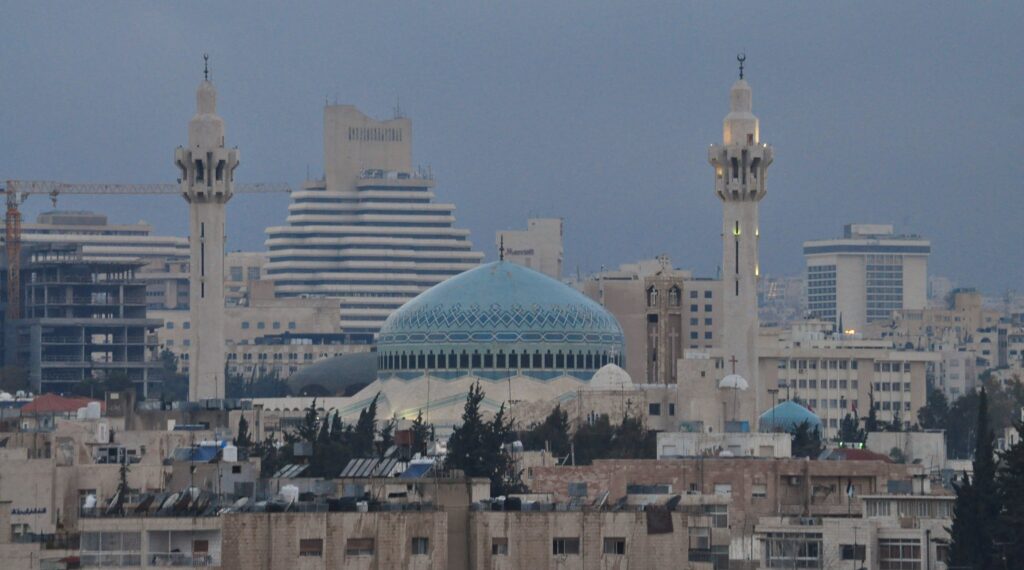
I recently came to the surprising realization that I had spent the plurality of my life away from Amman, away from home, and with no realistic prospect of ever returning there permanently. It was within the recognition of this fact that my thoughts lingered on the city after a recent visit.
I’ve wondered how this has come to be. Do I have some innate desire to escape that sense of being on the fringe that the city so ceaseless mainfests a provincial need to be unpronvicial? I suspect the truth is far more mundane than that and it is, depressingly, like most things in life, more to do with vulgar economics, a need to achieve a prosperity the city unfortunately cannot provide.
By all accounts, I had a wonderful and privileged upbringing in Amman from the 90s through the early 2000s. Amman of that period was a place that was in transition away from a small-ish regional capital with under one and a half million inhabitants, a provincial town in the wider Middle Eastern context, and standing one step outside the global economic and political order into something larger but not nearly as well defined. It had all the trappings of a small town cliché, a place where everyone knew their neighbors and you couldn’t leave your home without running into many people you might know.
As I think back on those early years of my life, I am struck by how fortunate we were to have come of age in that particular place and at that specific moment in time. It was somewhere small enough, liberal enough where one could explore oneself in adolescence, experiment without any real threat of lasting damage, a safe environment in which teenagers can push the boundaries of experience ensconced within a warm protective blanket of a colloquial familial-ism
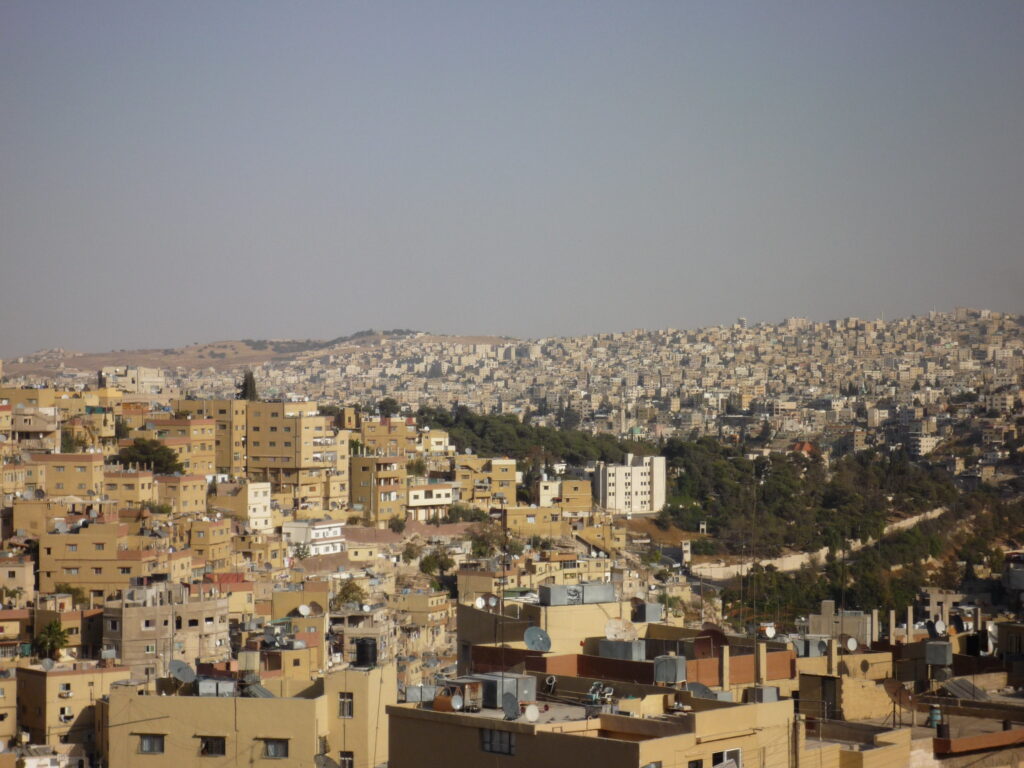
With a privileged upbringing, it was always understood that we would be leaving for university abroad once high school ended. It never occurred to me, nor I suspect to many of my fellow classmates, that the departure would be so permanent for so many of us, indeed most of us. Except for the rare visit whose limited frequency is equaled only by its brevity, I have spent all my adult life away.
During my infrequent yet at times frantic visits, the city strikes me as tired, heaving under its own weight and the portents of its past and too often unclear future. A great lady whose pock-marked visage betrays a premature aging beyond her years brought on by years of anxious and uneven growth. It has this uncanny quality of being outside of time despite all the changes it has witnessed.
Time, however, has not stood still. The city itself has more than tripled in size, its main thoroughfares and roads strain under the weight and whine of gridlock traffic in ways totally alien to its former self just 20 years ago. The city is busier, more polluted, more varied, more cosmopolitan, but beneath that aspirational veneer and pretense of a global city is that same provincial town as reflected in the familiar faces seen everywhere whose names remain elusive, just outside the grasp of memory.
When wandering into any restaurant, bar, or boutique, there is the constant feeling of the familiar. This sentiment permeates throughout. When walking into any of these establishments, those already inside gaze intently upon the newcomers, not out of any sense of rudeness or curiosity but rather to parse that omnipresent yet ethereal sense of the familiar to every face. Truth be told, chances are every third person coming through the door is either someone you know, once knew, or had met but can’t quite place and, in the case of the latter, the conversation will swiftly turn to placing who you might be within that the societal context e.g. that is X’s sister’s cousin’s brother from back in school, etc. Or this is Y who is married to the sister of that person you worked with. Going out for dinner or a drink is as much a culinary experience as it is a constant game of Six Degrees of Kevin Bacon.
Recently, while visiting one of our old local haunts, I surveyed the room and noticed all those familiar faces, recognizable but remaining nameless. It struck me then that this was the same as being back in school, looking at all the familiar faces in the cafeteria of those older and younger. Vaguely familiar but without a name attached to the face. It was a decidedly pleasant form of nostalgia but, as the night wore on, I felt an unceasing sense of claustrophobia, an irrational fear of being trapped, of becoming unstuck in time. It is this feeling of panic, mingled with the warm glow of belonging that together give a bittersweet tinge of gentle melancholic emotion that I have now come to so commonly associate with that city.
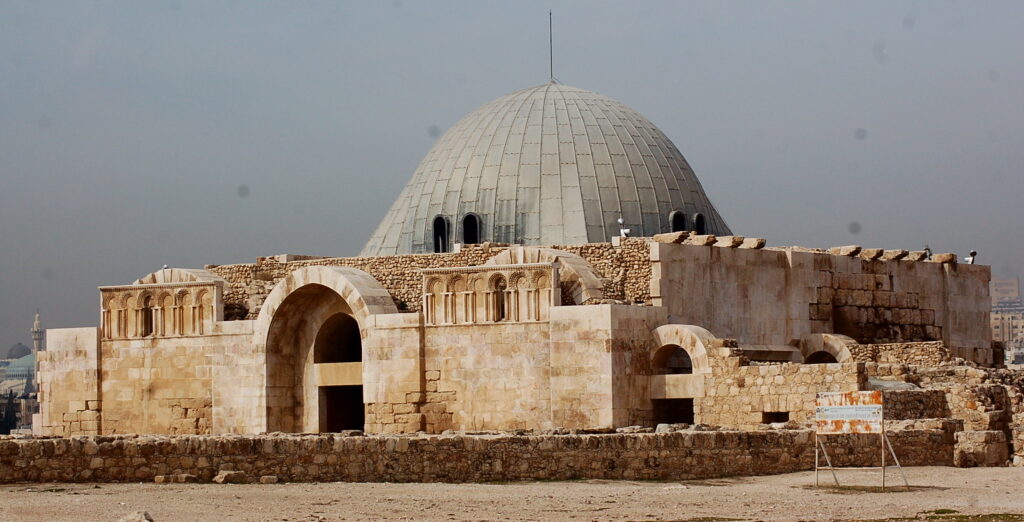
It is a comforting feeling, that sense of shared history and nostalgia but if allowed to linger becomes like an old friend, visiting as a guest for too long and eventually outstaying their welcome. I, and many of our self-imposed exiles, too often wallow in that nostalgia. Seeing in its streets and alleys and beneath the effervescent hue of the orange streetlights, our histories etched into immemorial time, or so we may like to think. We search for the multitude of our stories recorded in the walls of the city that speak to us as we long to hear our own stories retold as an echo coming off the white stone.
One derivative of that echo is a lingering feeling I have whenever I visit Amman, namely a sense of infinite possibilities, for it is the alpha to so many possible (or should I now say impossible) omegas in my life’s journey that were never to occur. The point of origin to so many paths that were never taken.
Yet I cannot shake this feeling that there is so much that is unfulfilled, unsaid, unexperienced and undone. It is the singular emotion that confounds me whenever I am there and leaves as soon as I board the plane to ultimately depart.
If I look at the city and proverbially squint very, very hard and think back to the early promise of the 2000s, I think of an alternative life, one where the city evolves in an entirely different direction, where prosperity and a sense of self-actualization are attainable. I think of the life that could’ve been if things had turned out very differently and from that counter-factual spring a hundred day-dreams and what-if scenarios that are dispelled in reason as easily as they are conjured in fantasy.
I often think, whenever I’m home for those fleeting visits, of all the past empires and cultures that had walked these same seven hills, not because this was the epicenter of great moments in history, for evidently it was not. But rather, I wonder if all those who came before also considered the infinite paths that sprung out of this place and took them elsewhere on the path to glory or obscurity.
I long for home, not the place, not even the people, but that moment in time when our future is not past, when the multitude of opportunities were still possible and where we lived, all of us on the periphery, but happy for it all the same.
For while it may be on the periphery, it very much is at the center of me.
Images: Chris, Andrew Moore, young shanahan, Dan and Berthold Werner

